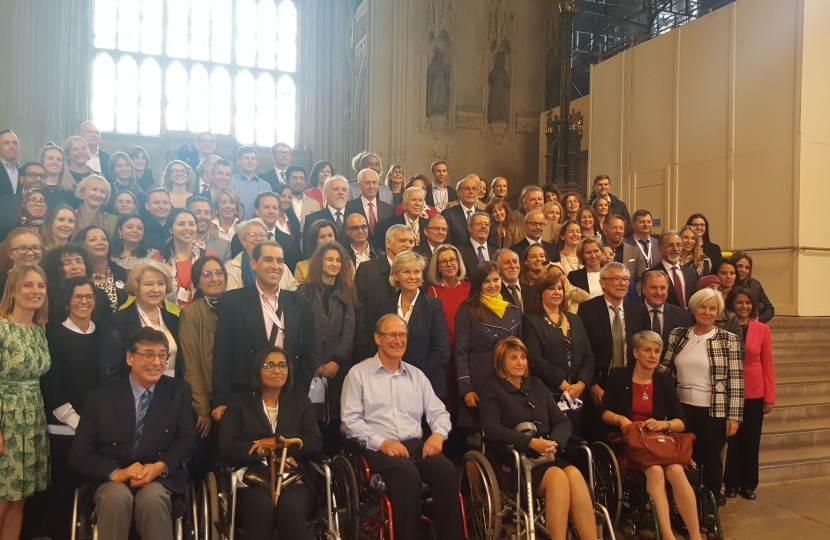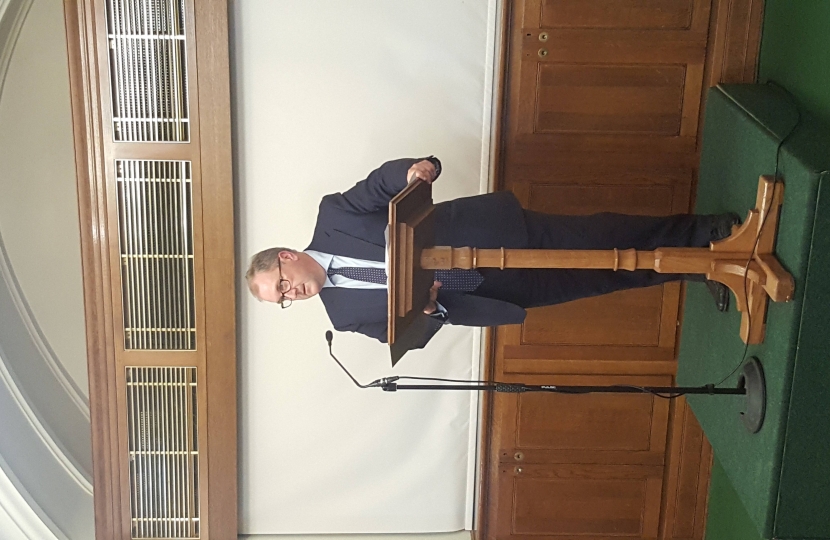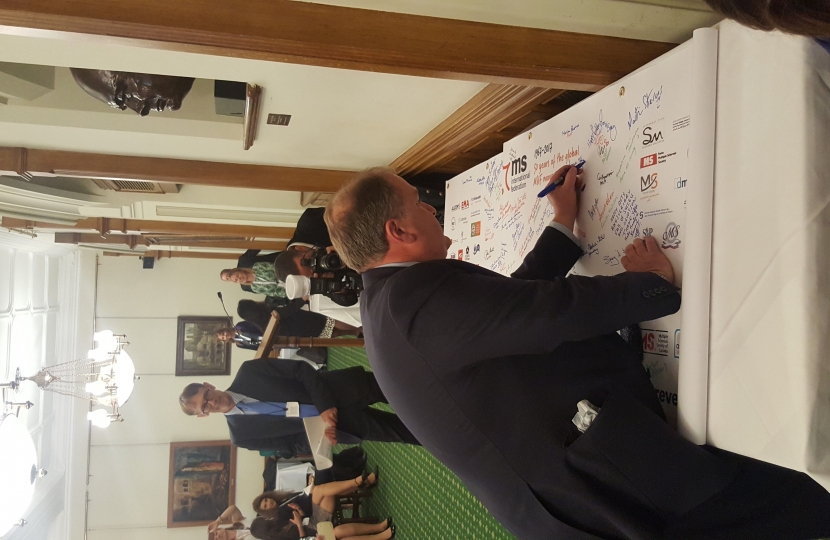Simon Hoare, Member of Parliament for North Dorset, garnered support from the Prime Minister for the work done by the MS Society.
Speaking during Prime Minister’s Questions on Wednesday 13th September, Mr Hoare, who is the Chair of the MS All-Party Group, asked: ‘May I invite my right hon. Friend, as Prime Minister, to send her good wishes to the MS International Federation as we celebrate this important milestone and to commit the Government, as they have done over the past few years, to work across Departments to ensure that those with MS have the maximum support and encouragement to get back into work, which so many of them wish to do?’
In response, the Prime Minister, the Rt Hon Theresa May MP, said: ‘I thank my hon. Friend for raising this issue, and I am happy to join him in sending our best wishes to the MS Society. I know from my own family of the impact that multiple sclerosis can have. The Society campaigns tirelessly for people with MS, and I am very pleased that my hon. Friend is hosting a reception to mark this important milestone.
We have seen progress over the past fifteen years. The Department of Health has made funds available for neurological research, which, of course, includes research on MS. As my hon. Friend says, however, it is not an issue just for the Department of Health. It is important to try to help people with MS back into the workplace—which we are doing in the Department for Work and Pensions—because many of them want to continue to be in the workplace and to provide for themselves and their families.’
Mr Hoare’s question during PMQs coincides with the Multiple Sclerosis International Federation’s 50th anniversary. To mark the occasion, Mr Hoare hosted a celebratory event in the House of Commons, welcoming partners from across the world who work tirelessly to tackle the condition.
Michelle Mitchell, Chief Executive of the MS Society, said: ‘We’re delighted to have Simon’s support and look forward to continue working with him in the future. He has done some wonderful work to help us to raise awareness of this challenging and unpredictable condition, which affects more than 100,000 people in the UK today.’



